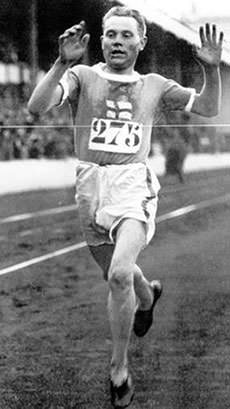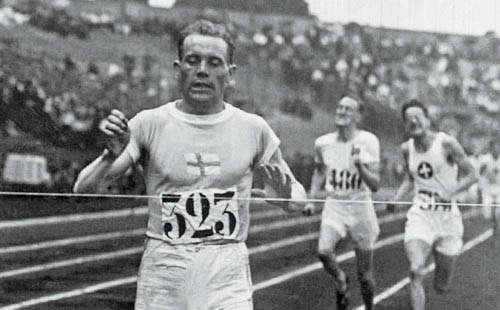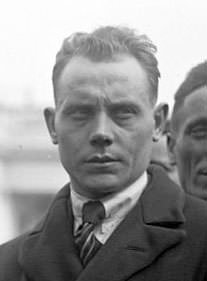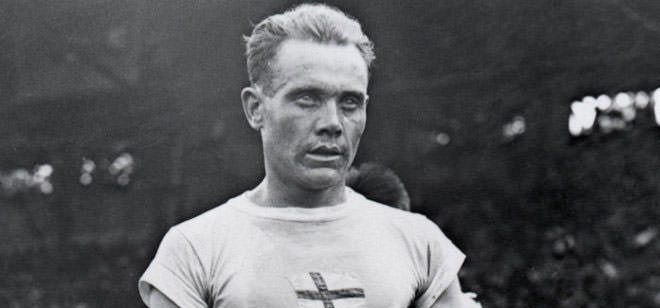
Born: 13 June 1897
Died: 2 October 1973
Country: Finland
In 1919 in the first year of his military service, Nurmi and the rest of his army unit set of on a 12.5 mile march in full equipment, each soldier carrying a rifle, a cartridge belt and a backpack full of sand. At the start they tried to walk briskly and a few even maintained the pace for long, for there were rewards for winners. Nurmi ran the entire route. Within a year he was representing Finland in the Olympics.
Competing in his first Olympic race, the 5000m, in 1920 Antwerp Games, Nurmi was overtaken in the final lap and could win only a silver medal. The next time Nurmi came second in an Olympic race was 8 years and 9 gold medals later.
Nurmi was known for his iron will, inhuman determination and fierce discipline. Before his advent, long distance runners started the race briskly, ran at a slow pace most of the distance and increased their pace in the end. Nurmi changed that; he ran at the same steady pace lap after lap with a stop watch in his hand. The unbelievable thing about him was that it never seemed that he exerted himself to win a race.
Nurmi won three gold medals (10,000 m, cross country event, cross country team event) and a silver medal (5,000m) at the 1920 Antwerp Olympics. His performance four years later is unparalleled.
At the 1924 Paris Olympic Games, Paavo Nurmi competed in 5 events (1500m, 5000m, cross country event, 3000m team event, cross country team event) and won all of them. The finals of 1500m and 5000m were only 26 minutes apart and yet he competed in both races and won them easily, missing the world record in 1500m by a second. The intense heat made the final of 10,000m cross country so difficult that less than a dozen of the 42 starters could finish it. Nurmi finished the race a minute and a half ahead of his closest rival and seemed untroubled.


The Guardian wrote – “He reduced the 1924 Olympic Games in Paris to a farce, a series of exhibition races”. Nurmi’s five gold medals at Paris are still the most athletics gold medals at one Olympics in the history of the Games.
Nurmi went on to win another gold medal and two silvers at the 1928 Amsterdam Olympics taking his total medal tally to twelve. Thus Nurmi competed in twelve Olympic races and won nine gold medals and three silvers. In a controversial decision Paavo Nurmi was not allowed to compete in the 1932 Summer Olympic Games as he was deemed a professional. Even though he was deprived of the opportunity to increase his medal tally, Nurmi still has more track and field medals than any other athlete.
Nurmi spoke very little and hence he was given the nickname ‘Great Silent One’. After a congratulatory note during his 1925 U.S. tour people expected him to give a speech but Nurmi’s response was a simple “Thank You.”

